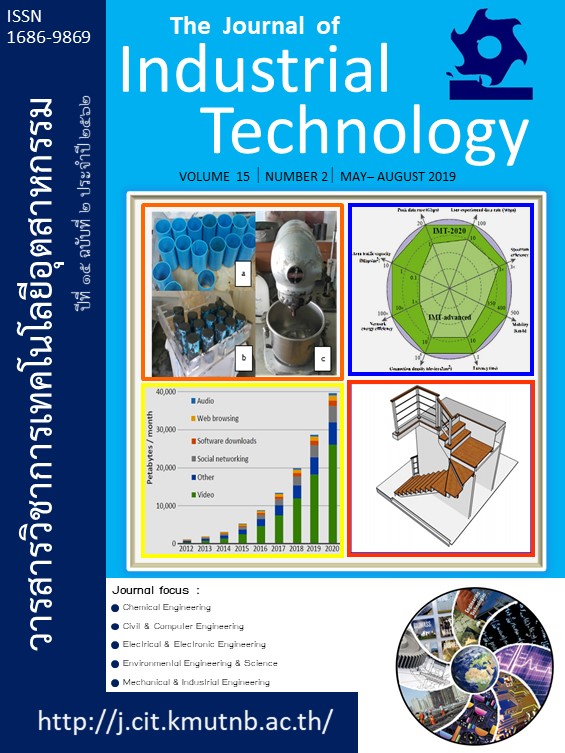ปัจจัยแห่งความสำเร็จของผู้ประกอบการธุรกิจออนไลน์ในยุคดิจิทัล(Factors for Success for Online Business Entrepreneurs in the Digital Age)
Keywords:
Characteristics of entrepreneur, Information technology, Business strategy, InnovationAbstract
Abstract
The objectives of this research were to: 1) study the success of online business entrepreneurs in the digital age; and 2) examine factors contributing to the success of online business entrepreneurs in the digital age. This research employed quantitative and qualitative research methodologies. In the quantitative research, the sample consisted of 260 online business entrepreneurs, obtained via multi-stage sampling. The sample size was determined based on 20 times the observed variables. Data were collected with the use of a questionnaire and analyzed with a structural equation model. For the qualitative research, in-depth interviews were conducted with 15 key informants including online business entrepreneurs and academic persons in the field of marketing. These informants were selected by purposive sampling. Data were analyzed with content analysis. The research findings showed that: 1) the success of the online business entrepreneurs was rated at a high level; 2) the characteristics of entrepreneurs, information technology, business strategies, and management innovation, all contributed to the success of online business entrepreneurs in the digital age with .05 level of statistical significance. Moreover, the findings also revealed an important point that entrepreneurs in the digital age needed to examine the needs of customers and respond to such needs promptly so that a marketing opportunity could be gained quickly. This could be done with the use of technologies in the digital age. Additionally, online entrepreneurs also needed to adjust their marketing strategies according to the market situations to ensure that they are competitive. They also needed to apply management innovation in the adjustment of business strategies to increase sales and expand their markets. These would align the business according to customer needs, leading to customer satisfaction, word of mouth communication among customers, repeat consumption, and brand loyalty. These findings can be used as guidelines for the development of success of online business entrepreneurs in the digital age by enhancing their potential in terms of marketing competitive advantage, creating and improving trading networks, and applying innovations and modern technologies in the development of their online businesses.
References
[2] Peerapong Kitiveshpokawat, “Technology Impact Your Daily Life”, Available: http://socialtht.blogspot. com/2011/01/blog-post_788.html, 07 April 2017.
(in Thai)
[3] M.Hasan.Harris, “Entrepreneurship and Innovation in e-Commerce”, Journal of Achievements in Materials and Manufacturing Engineering 32(1), 2009, pp 92.
[4] Ramanathan, R., U. Ramanathan and H. Hsiao, “The Impact of e-Commerce on Taiwanese SMEs: Marketing and Operations Effects”, Int. J. Production Economics 140(2), 2012a, pp. 934-943.
[5] Sasirin Sayasonti, “Why Startup in Thailand is not Successful?, Available: http://www.bangkokbiznews. com/news/detail/760159, 12 February 2018. (in Thai)
[6] Creswell, J. W., & Plano Clark, V. L., “Designing and Conducting Mixed Methods Research Thousand Oaks”, CA: Sage, 2007.
[7] Electronic Transactions Development Agency (Public Organization), “Value of E-Commerce Survey in Thailand 2016 Thailand Internet User Profile 2016”, Available: http://www.etda.or.th/publishing-detail/ value-of-e-commerce-survey-2016.html, 16 January 2017. (in Thai)
[8] Nonglak wiratchai, “Twilight Program (66) Selection of Appropriate Statistics for Research”, Bangkok: National Research Council of Thailand, 2009.
[9] Hoyle, Rick H., ed. “Handbook of structural equation Modeling”, Guilford press, 2012.
[10] Joanne Snider, “Success Factors of Small Business Owners of Independent Financial Planning”, Firms Walden Dissertations and Doctoral Studies College of Management and Technology Walden University, 2015.
[11] Brenes, E. R., Montoya, D., & Ciravegna, L., “Differentiation Strategies in Emerging markets: The Case of Latin American Agribusinesses”, Journal of Business Research 67, 2014, pp 847-855.
[12] Dobbs, M. E., “Guidelines for applying Porter’s five forces framework: A set of industry analysis templates”, Competitiveness Review 24, 2014, pp 32-45, doi:10.1108/CR06-2013-0059
[13] Huarng, K.H., & Ribeiro-Soriano, D. E., “Developmental management: Theories, Methods, and Applications in Entrepreneurship, Innovation, and Sensemaking”, Journal of Business Research 67, 2014, pp 657–662.
[14] O’Donnell, A, “The Contribution of Networking to Small Firm Marketing”, Journal of Small Business Management 52, 2014, pp 164-187, doi:10.1111/ jsbm.12038


